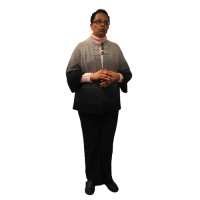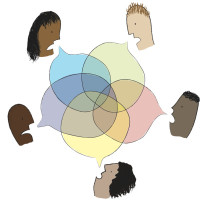
My introduction to the word “nigger” was swift, painful and left an indelible imprint on my psyche. It happened more than 40 years ago on a walk home from elementary school with my older brother. He was ahead of me on the sidewalk and any attempt at getting him to ease his pace wasn’t working. “Slow down, nigger,” I said.
He dropped his backpack, wheeled around and threw me to the ground. Then he was on me, his knees pinning my arms to the ground. He punched me hard in the face five times, drawing blood. With each strike he shouted, “Do you know what that word means?”
When I got up, his eyes were red with rage, his fists still clenched. “Go ahead and tell mom what you called me,” he said, seething. I never said a word to my mother and I never said the word again.
Ask an older black person to recall the first time they heard the N-word and, invariably, they’ll step back and tell a story that is equal parts anger and pain. Growing up during an era when African Americans were attacked by police dogs and beaten by Southern sheriff’s deputies, it’s hard for me to believe that the use of the word has changed so much.
Today, that history has given way to a culture that embraces the use of the word through music, movies and social media.
At Grant Magazine, we’ve spent nearly a year talking about how to tackle this incendiary word. It’s heard in the halls every day. People of all races say it with such regularity that you’d think its meaning has been neutralized over time. But it remains one of the most racist, harmful and disparaging words in the English language.
In an editorial in this issue, we take a stance against using the N-word. But you’ll read the word within the pages you hold. The magazine’s staff felt that in order to start a much-needed discussion about the word and its impact, people needed to see it, hear it and feel its power in order to understand. It’s not our intent to imply that it’s OK to use now because it’s printed here.
In this special report, you’ll read about how a series of racist incidents pushed the school to face the issue of race head on. Change, the school’s administrators say, is necessary, and we’ll see if they can deliver on that promise. It’s a tough issue to cover, but we felt compelled to shed light on it for you, our readers. We simply ask that you read with an open mind and let us know what you think.





You are doing great work. I am proud of what Grant students have achieved, as writers and thinkers in this edition.
Tony Greiner, Faculty adviser to The Bridge, Portland Community College’s student newspaper.